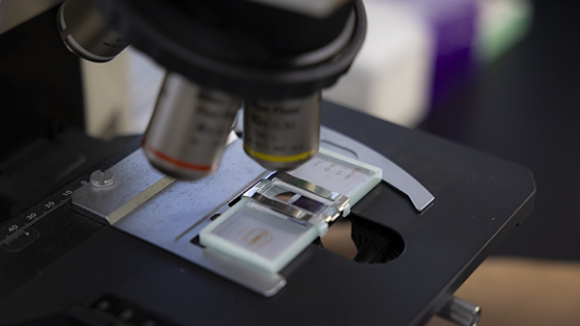
From Mechanisms to Treatment: Leading Research on Atopic Diseases for a Quarter Century
Atopy Research Center, Juntendo University Graduate School of MedicineDr. Ko Okumura, M.D., Ph.D.

From Mechanisms to Treatment: Leading Research on Atopic Diseases for a Quarter Century
Founded in 1998, the Atopy Research Center at Juntendo University School of Medicine is a global leader in the study of allergic and inflammatory diseases. Over the past 25 years, the center has been at the forefront of research on atopic diseases, striving to develop innovative treatments that improve patient outcomes. Director Ko Okumura discusses the center’s framework, its future role in the field, and emerging research opportunities.
Allergic diseases, including atopic dermatitis, have become increasingly prevalent, affecting nearly half of the population in Japan. Allergic diseases are considered key examples of ‘modern diseases,’ resulting from a complex interaction between environmental factors and genetic predisposition. Their symptoms are exacerbated by various internal and external aggravating factors, highlighting the urgency of comprehensive research. The Atopy Research Center was established to better understand these diseases and develop innovative prevention and treatment approaches. The center’s work spans both basic and clinical research, aiming to address this growing public health challenge.
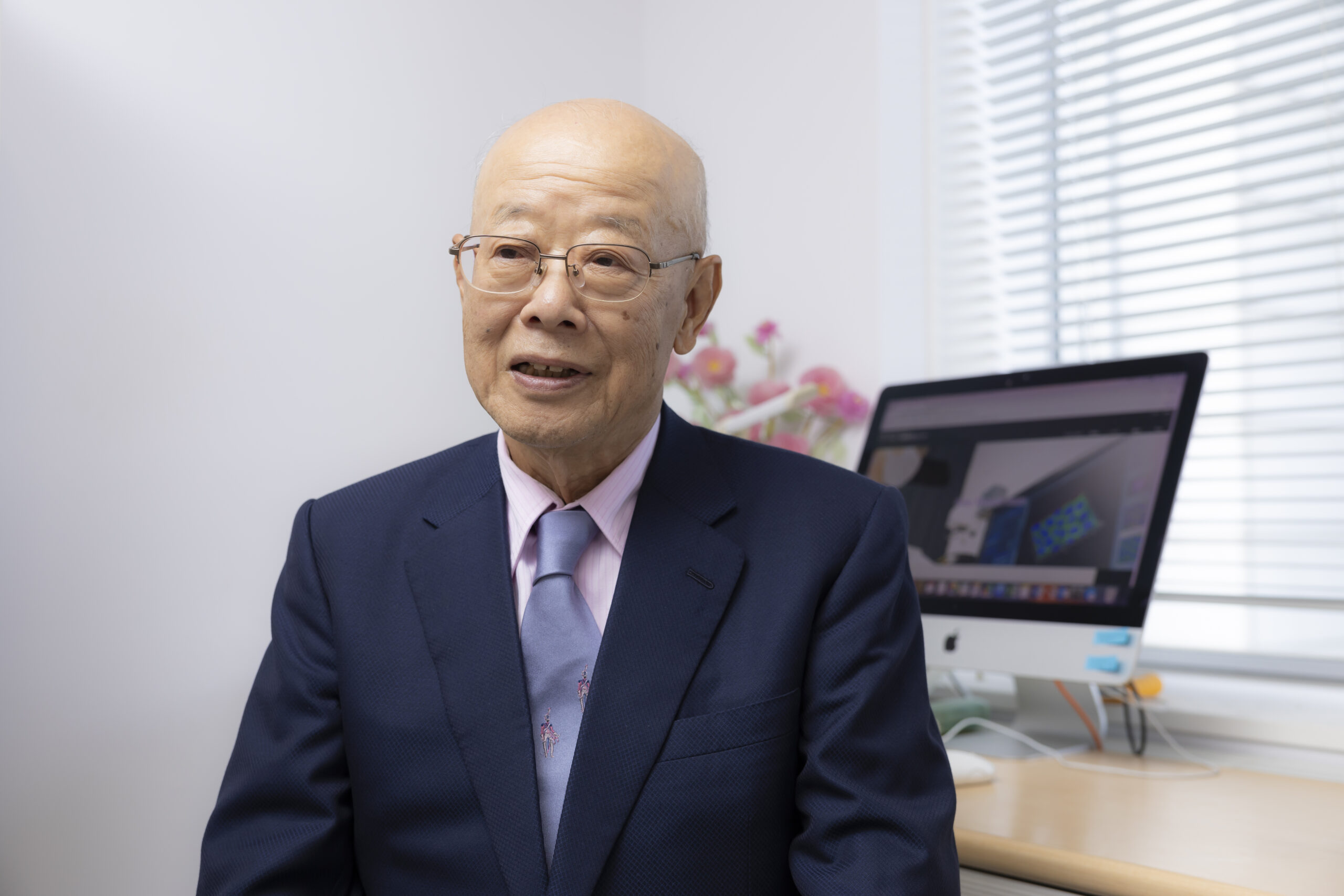
Our center brings together experts in genetics, molecular biology, cellular biology, and clinical research to study immune dysfunctions. We focus on understanding immune mechanisms, intracellular signaling, transcriptional regulation, and cell adhesion, along with their abnormalities. Recently, our research has expanded to explore the interactions between the immune, endocrine, and nervous systems, addressing emerging challenges in the field of life sciences. Since 1998, the center has trained numerous researchers who have advanced to play leading roles in academia and research worldwide. Additionally, the center fosters extensive collaborations with global institutions, including universities, research organizations, and pharmaceutical companies, while maintaining an inclusive environment that encourages diverse perspectives and interdisciplinary collaboration.
These strengths have facilitated extensive collaborative research, both within Juntendo University and with external organizations, including other universities, research institutes, and pharmaceutical companies. We also actively welcome international researchers and students, creating an inclusive environment where English is used in daily research activities and weekly lab meetings to support seamless integration.
The center is committed to understanding the pathology of allergic and inflammatory diseases, aiming to develop innovative prevention and treatment strategies that improve patients’ quality of life and contribute to a healthier society
To achieve these goals, the center is organized into four specialized research groups, each focused on advancing knowledge and uncovering mechanisms underlying atopic and other allergic conditions. Their research targets novel diagnostic and therapeutic approaches, organized as follows:
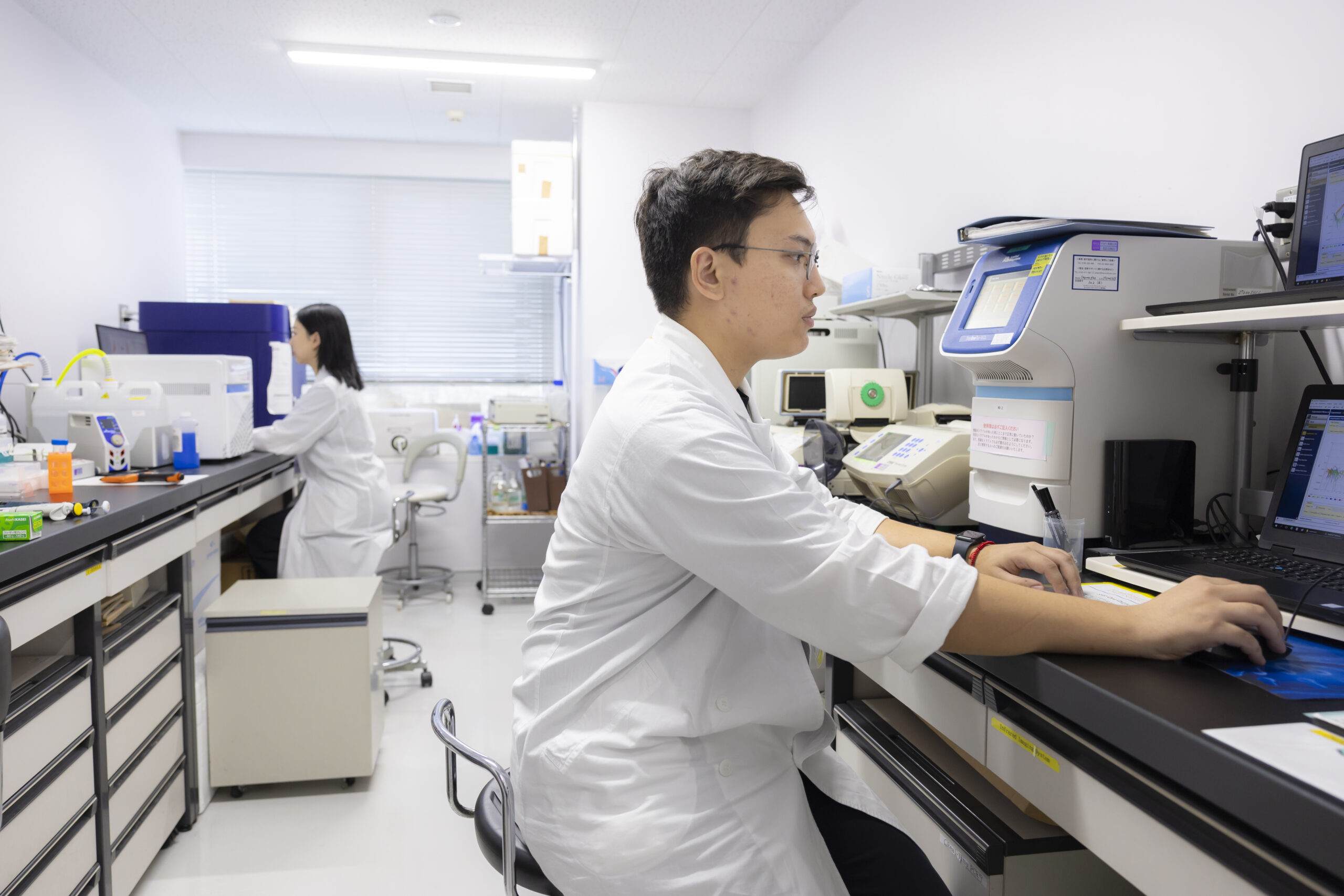
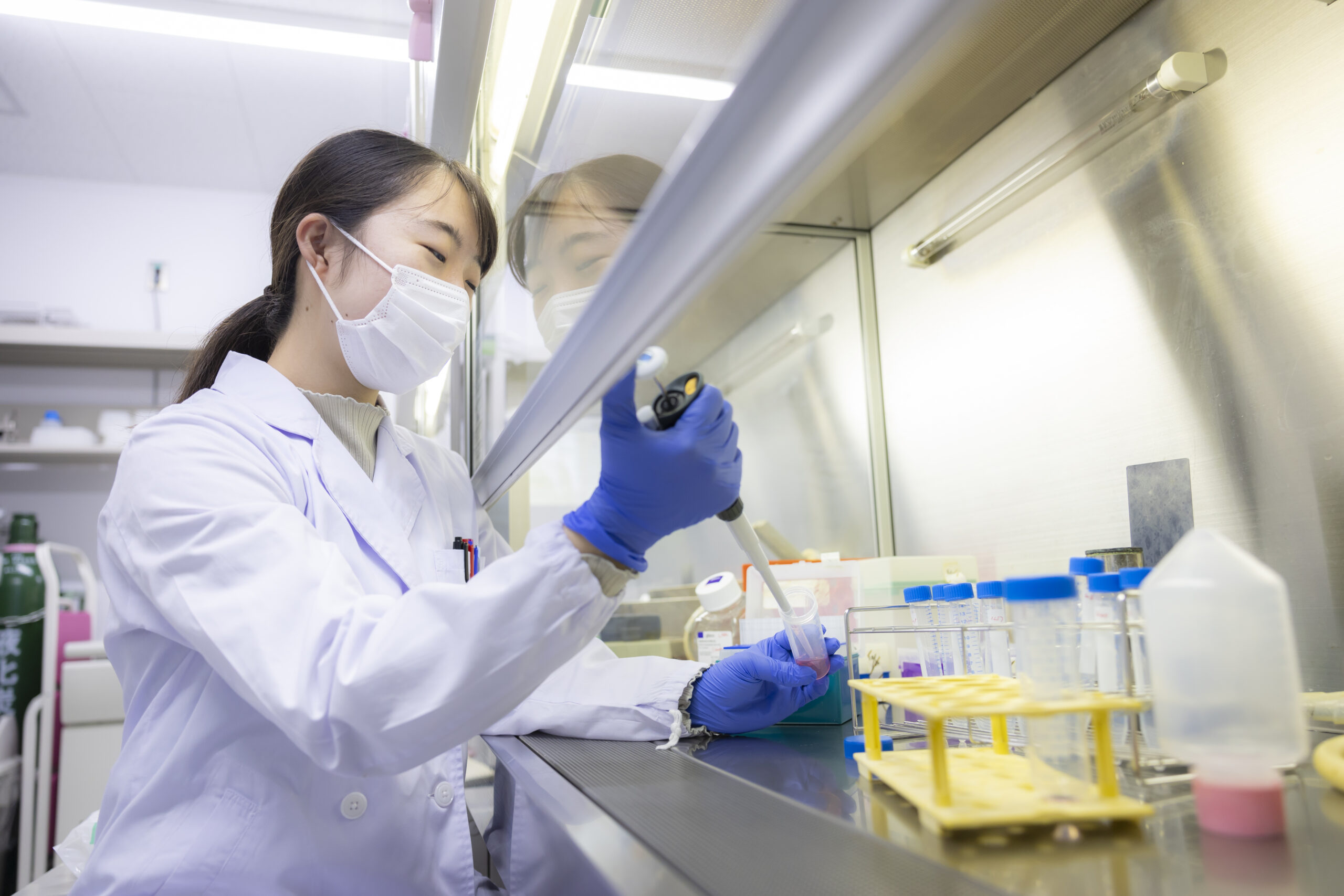
In a major step toward developing new treatments for allergic conjunctivitis (also known as “hay fever of the eyes”), a team led by Dr. Ko Okumura, in collaboration with ophthalmologic clinicians, made significant discoveries. The team uncovered the mechanisms by which the conjunctiva actively absorbs allergens and how mucus molecules protect the eye from pollen. While passive uptake mechanisms were previously understood, this groundbreaking research, published in JCI Insight in October 2023, demonstrates active allergen uptake mechanisms for the first time.
Furthermore, the study revealed that conjunctival goblet cells—cells on the eye’s surface that secrete mucus—respond to pollen shells by rapidly forming a structure called Goblet cell-associated antigen passage (GAP), playing a critical role in allergen uptake. Related research published in Nature Communications in March 2023 identified the enzyme sialyltransferase St6galnac1, which is highly expressed in the eye. This enzyme enhances the ability of mucus to encapsulate and eliminate pollen, providing a protective barrier for the eyes. These findings hold great promise for new treatments for ocular hay fever, linked to the increased activity of this enzyme.
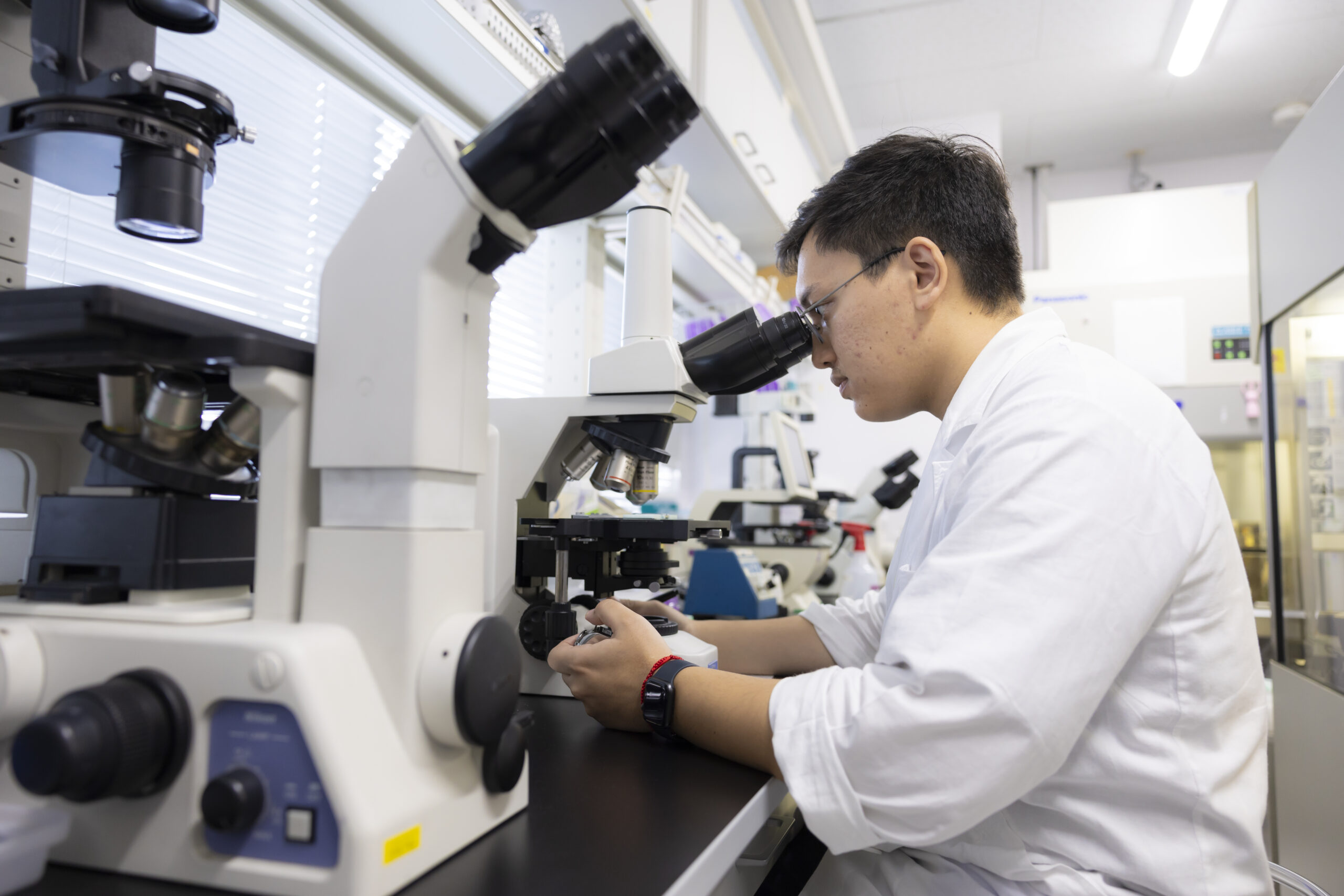
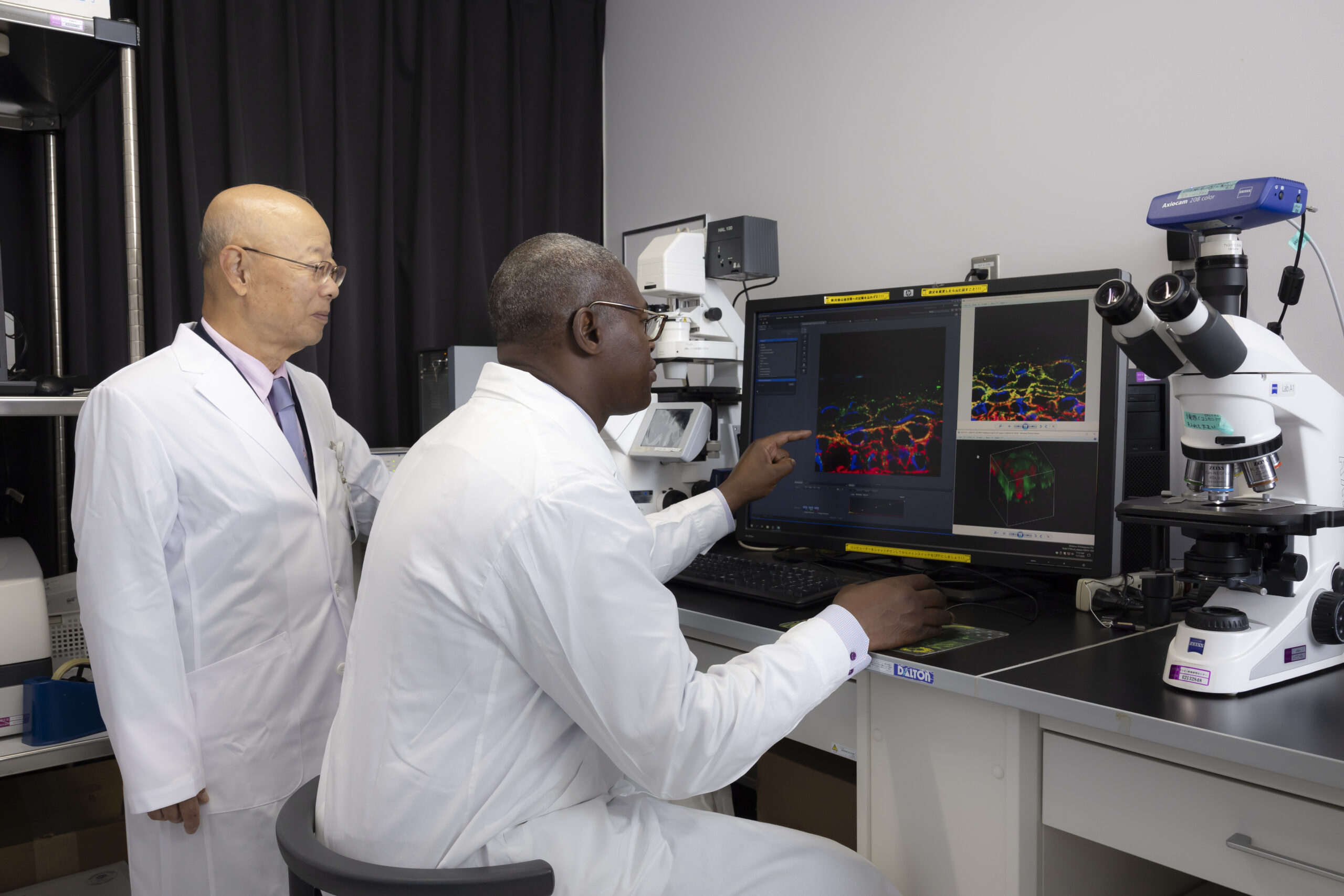
Beyond ophthalmology, Professor Francois Niyonsaba’s team is pioneering research into allergic diseases within dermatology. Their study on human β-defensin-3 shows that this antimicrobial peptide, which reduces inflammation in atopic dermatitis, has the ability to activate autophagy. This cellular mechanism replaces damaged proteins with new ones in epidermal keratinocytes. These groundbreaking findings uncovered a novel mechanism underlying atopic dermatitis and were published in the Journal of Clinical Investigation in 2022.
At our center, we investigate both immune system mechanisms and the impact of environmental factors on allergic diseases. Through interdisciplinary collaborations, we aim to develop innovative treatments that draw from diverse perspectives. For instance, a study involving pediatric clinicians on oral immunotherapy—gradually introducing allergenic foods to build tolerance—identified mechanisms that help reduce food allergy symptoms. This research, published in The Journal of Allergy and Clinical Immunology (2020), offers promising new approaches to food allergy treatment.
Additionally, we partner with leading institutions globally to explore innovative solutions. A notable study in collaboration with the University of Tokyo identified thioredoxin (TRX) as a novel inhibitor of NLRP1 inflammasome activity. This discovery sheds light on the role of the body’s redox state in innate immunity and paves the way for potential therapies targeting autoinflammatory diseases involving NLRP1. This study was published in Nature in September 2023.
Our center is dedicated to advancing scientific understanding and developing new treatments and preventive strategies for allergic diseases. Through global collaborations, we aim to serve as a hub for visionary research and enhance patient outcomes. Our ultimate goal is to enhance the quality of life for patients with allergies and inflammatory diseases and contributing to the realization of a healthier society.
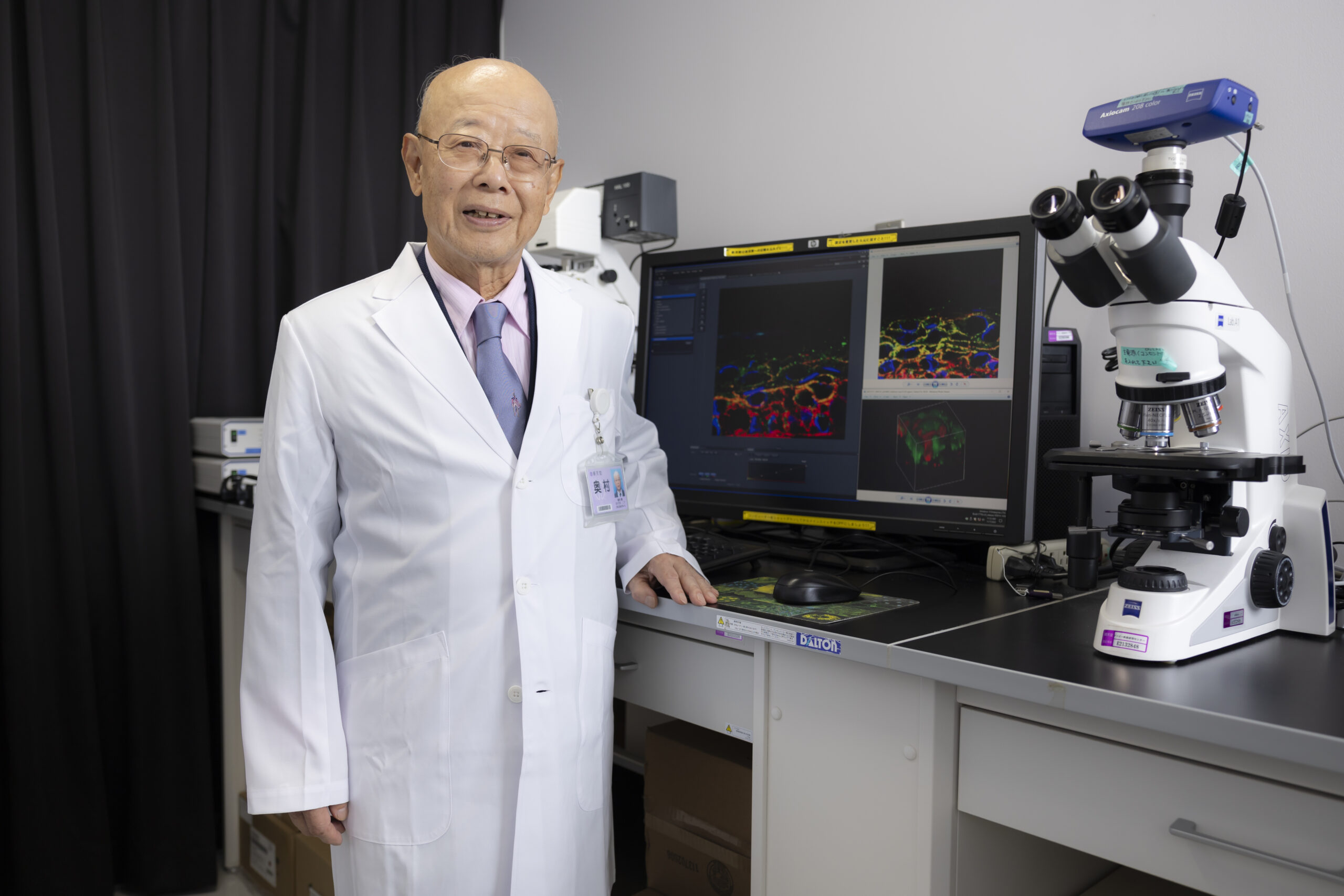
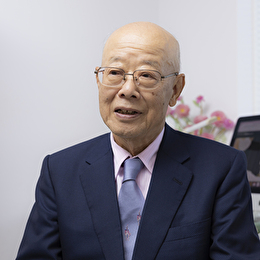
Director, Atopy Research Center, Juntendo University Graduate School of Medicine
Researchmap
Research Center